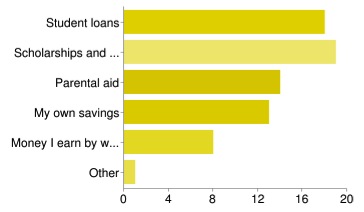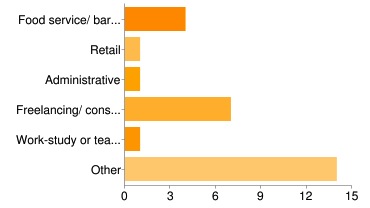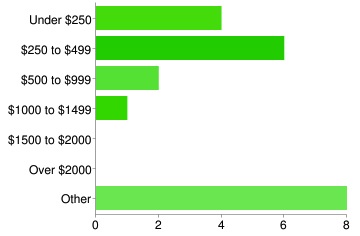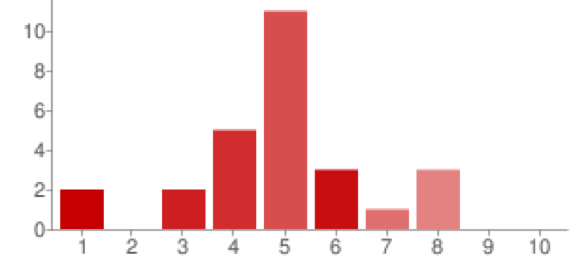Q: Do you work during grad school?
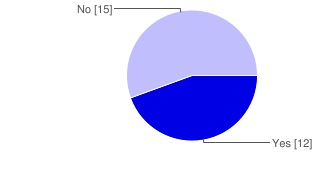
A few weeks ago, I asked how graduate students feel about working during school. How many students work while in grad school, I wondered, and how are they balancing employment with academics?
The results are in, and they are mixed. As you can see above, just under half (44 percent) of the 27 grad students surveyed are working this year, and 56 percent do not work. The majority of respondents are funding their graduate studies from a combination of sources such as scholarships and financial aid (the most common source), student loans (a close second), parental aid, and their own savings. Money earned from employment during the school year ranked last on the list of funding sources. So, while nearly half of grad students are working this year, nearly all still rely primarily on student loans and scholarships to pay their way.
How much can you earn while in grad school? Responses varied, but the majority of students (35 percent) earn between $250 and $499 per month. Twelve percent of students earn under $250, and three out of the 27 students surveyed earn between $500 and $1499. What this means is that most working students make enough money to pay a few bills, buy a few drinks, and maybe even pay part of the rent, but they are certainly not earning enough to cover the costs—tuition, fees, supplies, housing—of grad school itself.
Finally, how do grad students feel about balancing work and academics? I asked students to rank how positively or negatively they feel being employed affects their academic performance (1 = affects very negatively, 10 = affects very positively). The overwhelming majority, 60 percent, answered right in the middle, with either ‘4’ or ‘5’. So overall, it seems that although working during school may not be ideal, most students are pulling through. The real challenge will be paying back those pesky student loans once grad school is over.

